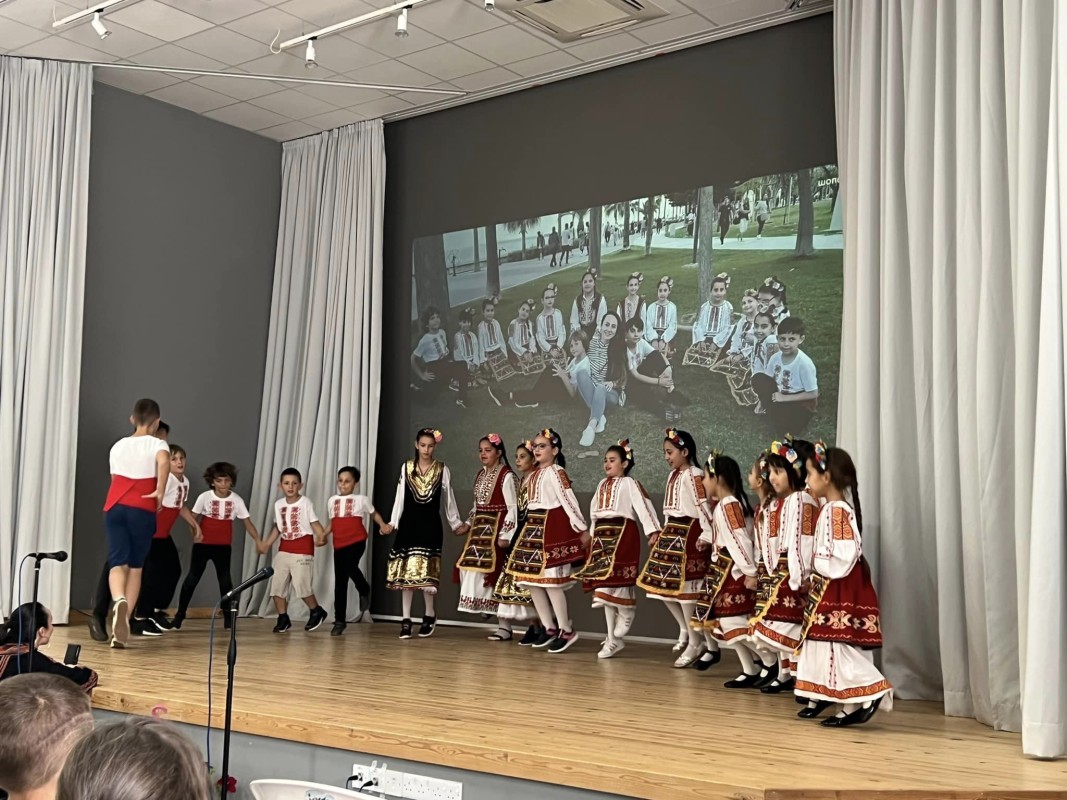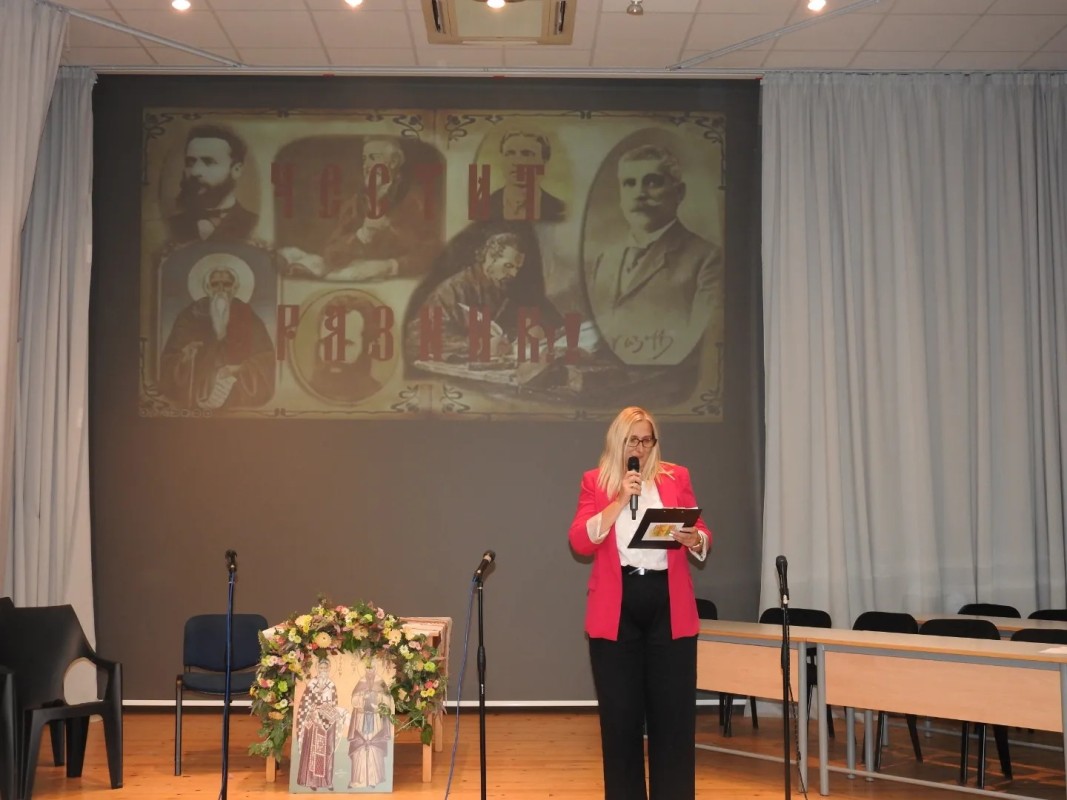The Bulgarian cultural association in Cyprus is named after a renowned Bulgarian revolutionary, one of the organizers of the April Uprising of 1876 – Atanas Shabanov from Koprivshitsa.
“We wanted the association to bear the name of a Bulgarian enlightener, so we released a book with biographical data about this prominent figure from the Bulgarian National Revival. Atanas Shabanov was exiled in Cyprus but he never stopped his fight for the freedom of Bulgaria,” says Maria Mavroudi, chair of the Cultural Association of Bulgarians in Cyprus, in an interview with Radio Bulgaria. It is a comparatively new organization endavouring to help Bulgarians arriving on the island who want to keep the memory of their Bulgarian roots alive. “We have succeeded in doing that, mostly because of the Bulgarian school, which this year turned 15 since it was founded,” Maria Mavroudi says.
There are around 35,000 Bulgarians in Cyprus, as well as many seasonal workers who go there in summer. The Bulgarian Cultural Association Atanas Shabanov is seated in the town of Paralimni in the Southern part of the country, literally on the border between Cyprus and Northern Cyprus. 
The Bulgarian school has the attention of the local authorities, and the mayor of Paralimni personally. This year, 103 children were enrolled, a fact the school board are particularly proud of:
“It is a Saturday-Sunday school from the 1st to the 12th grade, where the children learn the Bulgarian language, literature, and history and geography of Bulgaria,” Maria Mavroudi explains. “We have a dance group called Belonogi, and we take part in many local festivals. We are taking part in the urban Christmas bazaar for the fourth time, and one of the nights –15 December – is even dedicated to Bulgaria. Our aim is to show as much of Bulgaria as we can. People in Cyprus find it very interesting and enjoy such initiatives. They all know that there is good rakia in Bulgaria, and are really impressed by mulled rakia.”
The friendship and the fondness people in Cyprus have for Bulgaria has its history. Here is Maria Mavroudi, who has been living in Cyprus for 30 years, with more about this history:
“The locals regard Bulgaria with fondness, some with nostalgia, because we all remember the so-called Cyprus hostels created in Bulgaria after 1974. That was when Turkey invaded Cyprus, and quite a few Cypriots came to work in Bulgaria. Most of them stayed in the country, graduated from university and then started a tradition of sending their own children to study in Bulgaria. That resulted in a stream of students from Cyprus coming to Bulgaria to study medicine, journalism, architecture, engineering etc. After the democratic changes in 1989, a great many Bulgarians went to work on the island, some came back, but quite a few married and remained in Cyprus.”
Today the Atanas Shabanov association in Cyprus has set itself a very ambitious though not impossible aim – that works by Bulgarian authors be included in the curriculum of the state schools in Cyprus. Maria Mavroudi believes that with the combined efforts of ambassadors, cabinet ministers and the Union of Bulgarian Writers, this dream can be attained: 
“People in Cyprus are very hospitable, very welcoming to Bulgarians, they have kept their fondness of Bulgarians and all things connected with the country. They know about our mountains, our monasteries, and quite a lot of things about our history. That is why if Bulgarian literature does become part of the education process, and if Bulgarian books are sold in book stores, that would boost interest further and would be one more thing people in Cyprus and in Bulgaria can share. I myself am very fond of writer Yordan Yovkov. And I think there are quite a few things the two nations have in common, so an author like Yovkov will be understood in Cyprus. We share many things like the bond with the land, Christian Orthodoxy, sometimes humour, so there are many things that connect us with Cyprus.”
Translated and posted by Milena Daynova
Photos: Pexels, Bulgarian school Narodni Buditeli in Paralimni
Bulgarian football legend Hristo Stoichkov has accepted an invitation from FIFA President Gianni Infantino to join his team . "It is a great honor for me to accept Gianni Infantino’s invitation to work for FIFA. I will represent both myself and..
He says he has not felt like a foreigner in Bulgaria for a long time. This is his home, he has learnt Bulgarian and like most of our compatriots he is interested in the political situation in the country. But his greatest passion, what fills his days with..
Assoc. Prof. Marco Scarpa studies Cyril and Methodius’ legacy and the role of the Southern Slavic scriptoriums, and the 14 th century men of letters who worked there for the flourishment of culture in the Balkans. He is also interested in the..

+359 2 9336 661
